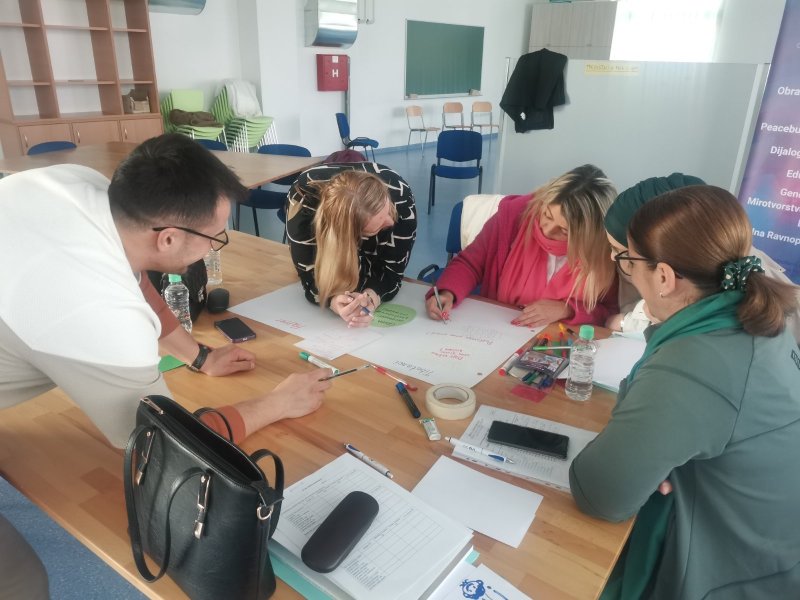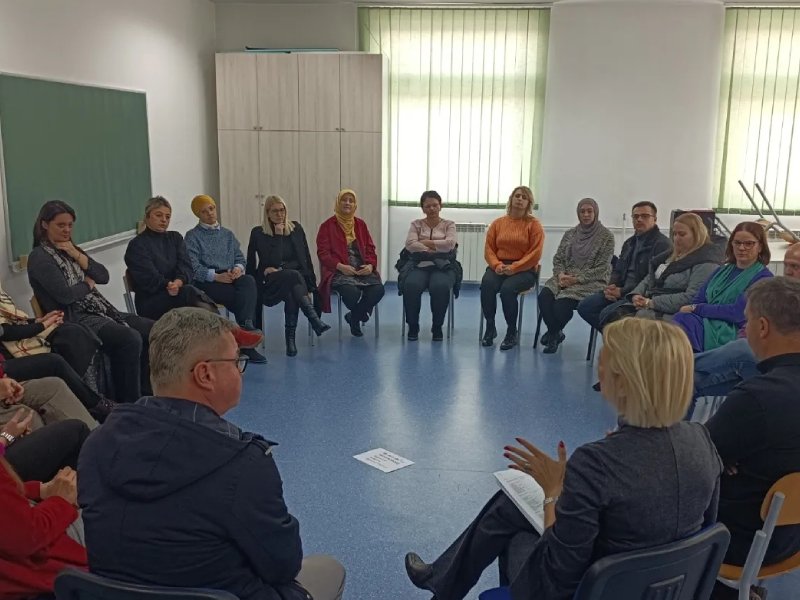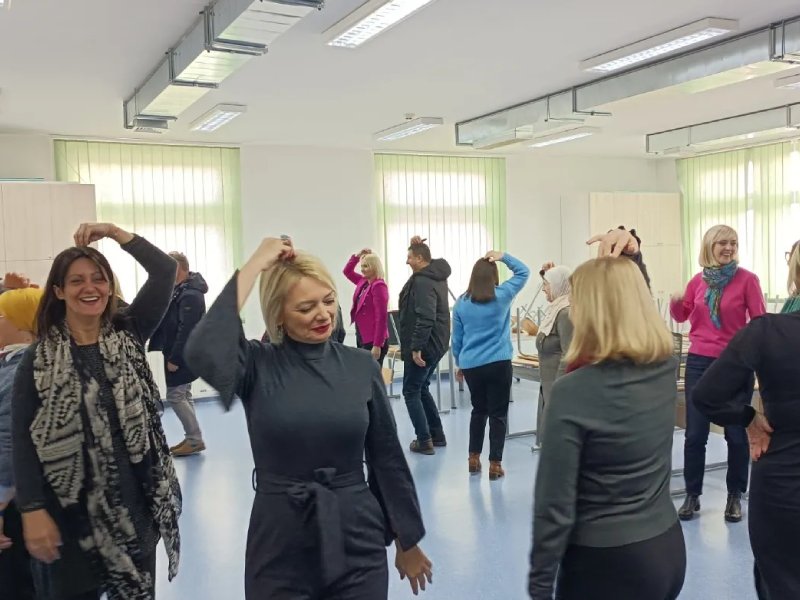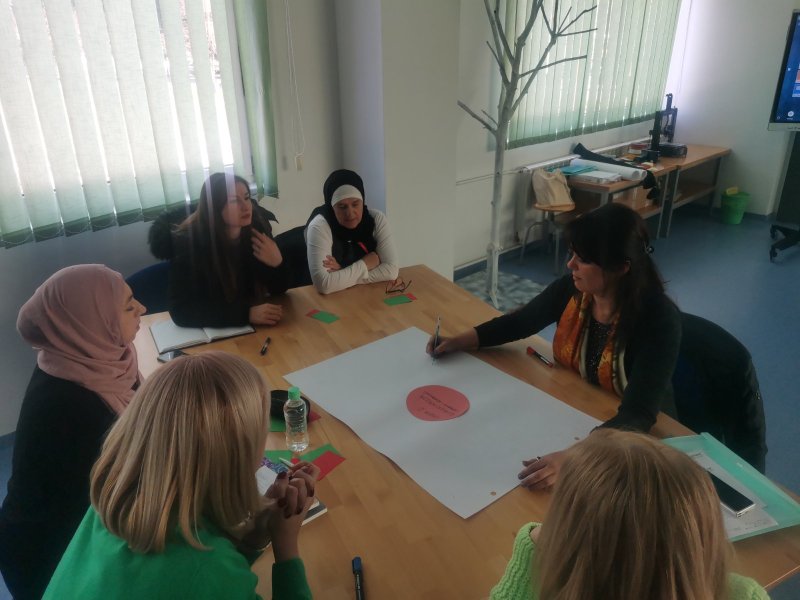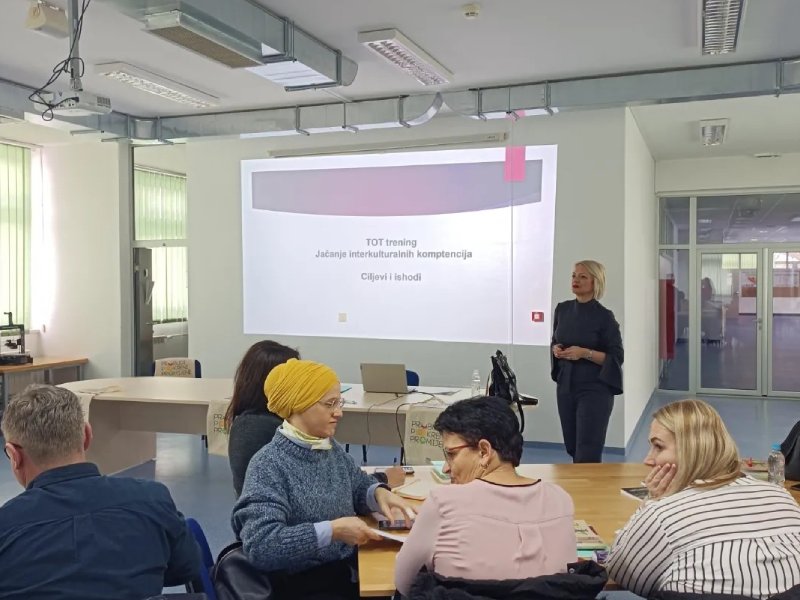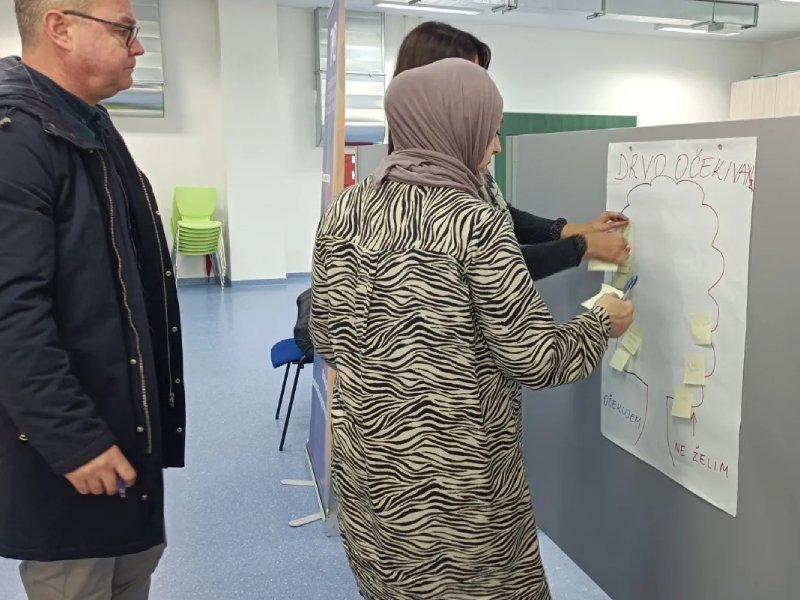In the period from 15-16. January 2024, the first TOT training module for strengthen the intercultural competences of teaching and professional staff was held for four schools in the Hadžići Municipality. The training was led by experts in the field of interculturalism and social cohesion: prof. Jasna Kovačevič, PhD, M.Sc. Elmana Cerić, Lejla Đelilović, BA and Mirza Kovačević, BA. The opening remarks were delivered by the director of the TPO Foundation, prof. Zilka Spahić Šiljak, PhD.
Total of 21 teachers and professional staff from four primary schools took part in the training: Primary School 6. Mart, Primary School Hadžići, Primary School 9. May and Primary School Hilmi ef. Šarić. On the first day of the training, the participants got to know each other and highlighted their own expectations. Trainer Cerić emphasized the goal of education – to improve the ethos of intercultural learning and understanding in the school and local community through the empowerment of teaching and professional staff. The rest of the day was spent discussing the diversity of cultures, gender, identity, tradition, religion and values, that is, the importance of intercultural education in the 21st century. Migration is a process that takes place circularly throughout the world, and its consequences are also visible in education. Therefore, it is imperative to strengthen the intercultural competences of teaching and professional staff.
The second day of training was led by prof. Jasna Kovačević, PhD, Mirza Kovačević, BA and Lejla Đelilović, BA. The focus was on stereotypes and prejudices in the intercultural context, and the participants were also introduced to a relatively lower term – unconscious bias. In the first half of the 20th century, discrimination, biases and stereotypes were direct and explicit, and very often represented in public discourse. Today, discrimination, biases and stereotypes look different than they did in the first half of the 20th century and take a less obvious form. The last training session was about Benenet’s development continuum. The developmental model of intercultural sensitivity originally developed by Milton Bennett in 1986 is one of the most influential models in the field of intercultural communication. The model describes the standard ways in which people experience, interpret, and interact with cultural differences and suggests a developmental continuum along which people can progress toward a deeper understanding and appreciation of cultural differences.
After the training, the participants pointed out that their expectations were more than met and that they are looking forward to the next meeting. The training made the participants aware that we all have certain prejudices against different groups and that this is the first step in working to overcoming them.
Our activities are supported in the framework of the project “Individual measures to strengthen capacities for managing migration flows in Bosnia and Herzegovina” financed by the European Union and implemented by the International Organization for Migration (IOM).


